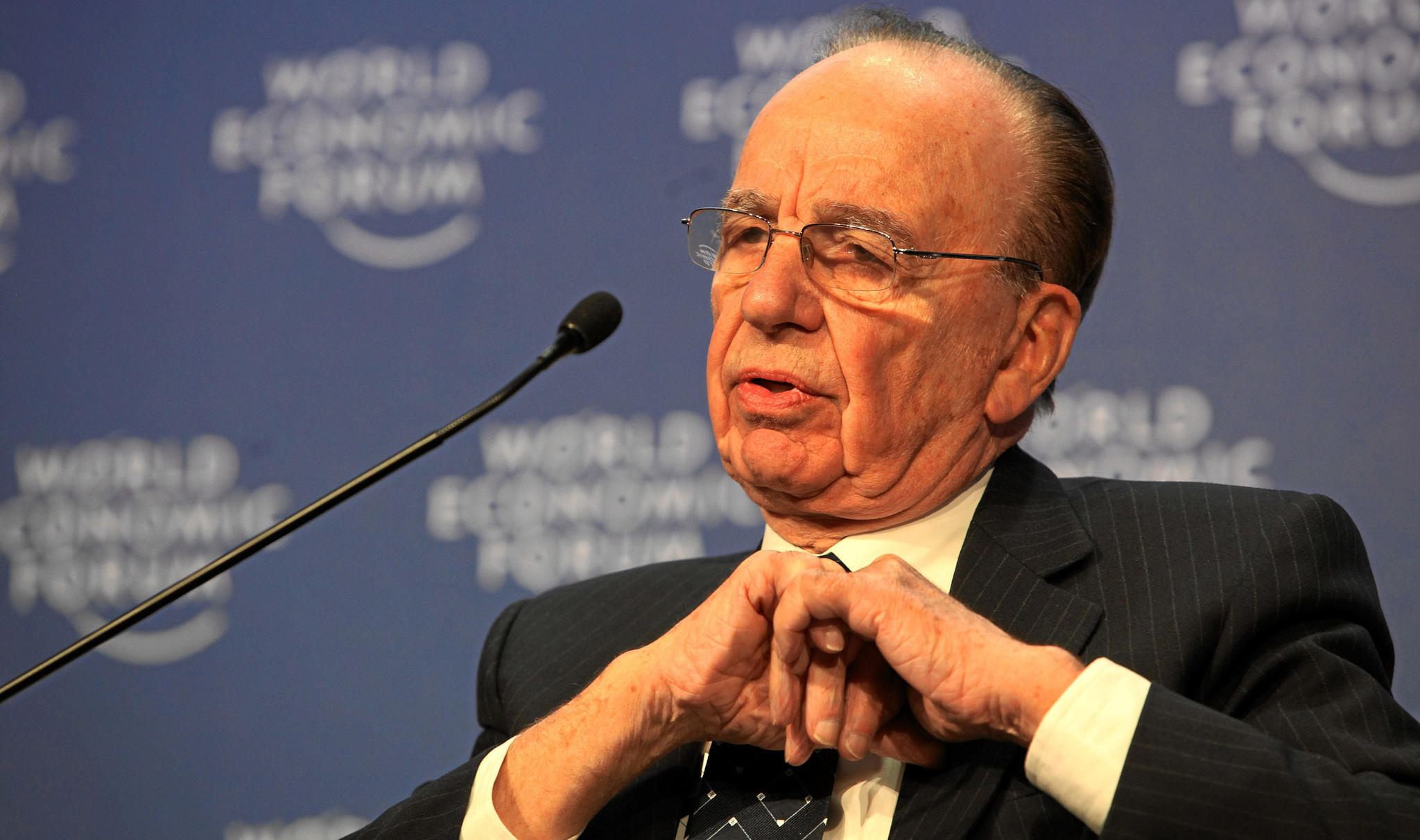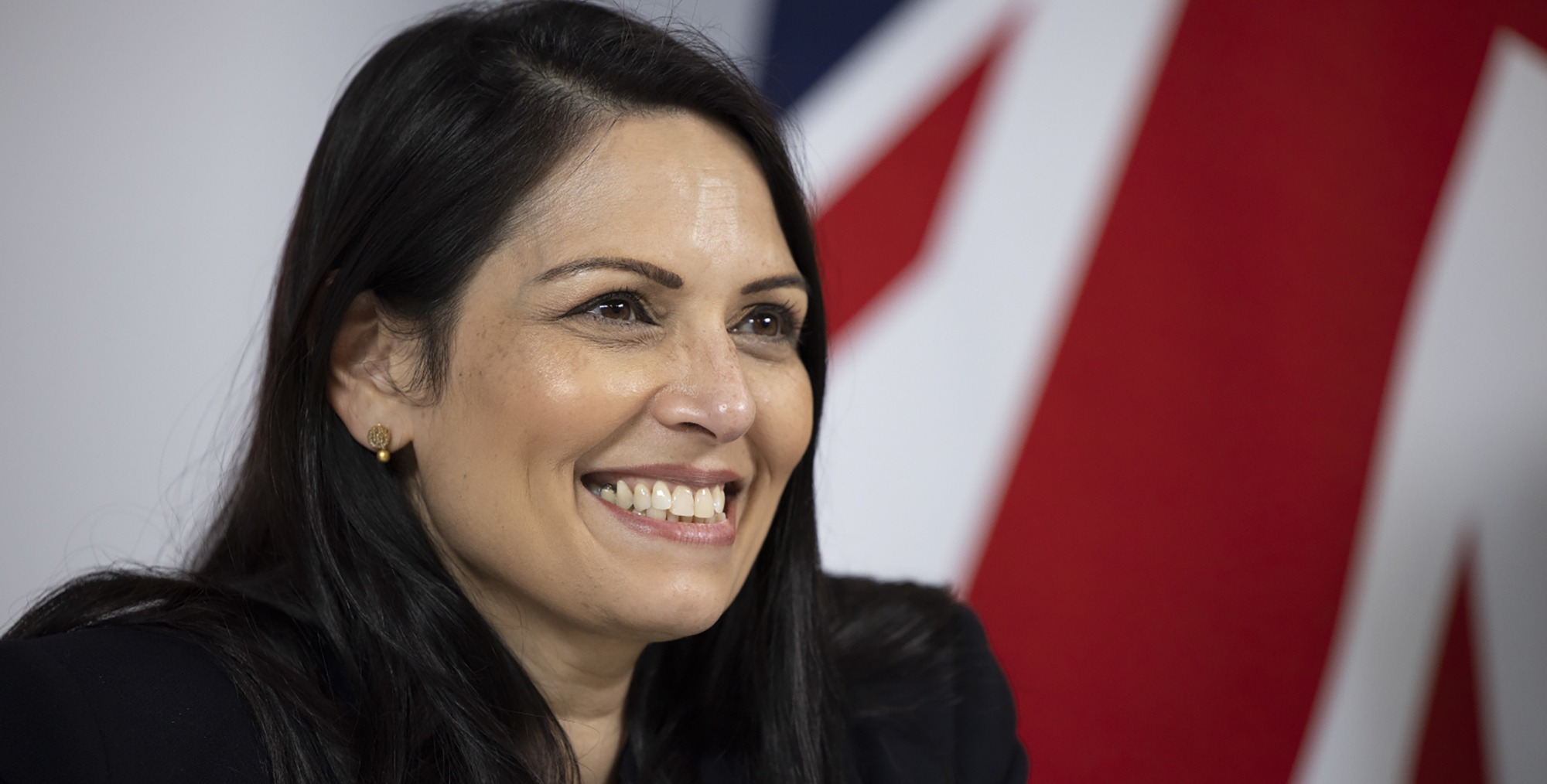A healthy media is often claimed to be the life-blood of democracy. This is because journalism should help citizens understand the world and participate fully in social and political life.
For this to happen we need our media to inform the public independently and cover issues from a variety of perspectives and with a diversity of voices. Journalism must operate freely and without interference from state institutions, corporate pressures or fear of intimidation and persecution.
It must hold the powerful to account and provide a platform for intelligible and illuminating debate. This ideal is hinged on a conception of independent journalism in the public interest.
But much of the mainstream media in the UK now falls far short of this.
In recent years, we’ve seen how inadequate our news organisations have been for navigating major shocks such as Brexit, the pandemic and the growing climate catastrophe.
The UK media landscape is one where public interest aspirations are increasingly subsumed by excessive corporate power and commercialism and the priorities of powerful tech companies and streaming services.
At the same time, news outlets are increasingly susceptible to clickbait journalism and controlled by media moguls trying to hold on to their power and influence.
Without widely trusted institutions that can help us talk to one another and make collective decisions that serve the public good, we will undoubtedly see elites prosper, inequality soar, and the further erosion of democratic and human rights.
Independent journalism is critical to this but is being severely obstructed in the UK by three main structural factors.
Concentration of media ownership
The first is that concentration of media ownership has been allowed to develop unchecked for decades. Three companies now control 90% of our national newspaper market and 83% of local newspapers are controlled by just six companies.
Meta (Facebook) controls three of the top five social media services used to access online news in the UK. Traditional news organisations account for 48% of Facebook users’ news sources expanding the online market reach of a few dominant publishers.
Media concentration enables wealthy individuals to amass great social and political power. For example, Rupert Murdoch was strongly in favour of invading Iraq in 2003 – and so were all but one of his 175 newspapers across the world. This made it easier for the UK government to ignore millions of people protesting against the war, and to avoid scrutiny of their decisions.
The larger and more concentrated media empires become, the more concerned politicians are to maintain good relations with owners and editors. The Leveson Inquiry into the media revealed how politicians steered clear of regulating media concentration to garner favour with news proprietors.
In the UK, four successive prime ministers gave evidence to the inquiry, admitting they were “too close” to the big media players because the political stakes were so very high.
In such circumstances, political parties, the police and other institutions are reluctant to investigate wrong-doing by the media or introduce regulation to protect the public interest.
Commercial constraints
Commercial news organisations are first and foremost businesses and their primary aim is to make profit for their shareholders.
With the shift to digital content and the migration of advertising to online sites, profits of mainstream newspapers in particular slumped at a time when they had to create more content than ever, 24 hours a day. This contributed to what has commonly been called ‘cut and paste journalism’ and to pro-consumerist media content or clickbait.
The collapse in the business model for news has led to journalists’ jobs being cut to retain profit margins and remaining journalists being put increasingly on precarious, short-term employment contracts.
Insecurity of employment leads to compliant journalism with journalists fearful of losing their jobs or too intimidated to stand up to a bullying culture where market-oriented managers place commercial priorities above journalistic responsibility and integrity.
“Corporate media are profit-led and not guided by public good considerations.”
It has also led to mergers and takeovers of local newspapers by larger conglomerates reducing news access and diversity. Since 2005 as many as 295 local newspapers have closed. In 2019 more than half the UK’s Local Authority Districts were served by only one publisher, creating news deserts.
Commercial constraints have fundamentally altered the nature of news production. Corporate conglomerates exert pressure on news organisations that impact upon their structures and content through advertising, sponsorship and board-level pressures to produce ever more profit.
When the Daily Telegraph’s political editor Peter Oborne left in 2015, he cited a series of favourable stories linked to companies that advertised in the paper.
Corporate media are profit-led and not guided by public good considerations. They are not obliged to fund unprofitable news production or cater to all groups and interests in society.
Hence they are prone to draw ratings, attract clicks and offer entertainment-led or sensationalist forms of news. News is treated like any other commodity: only it isn’t – news guides the public conversation and helps set the political agenda.
Political interference
A media that is directly beholden to any government and has its funding allocated by it (such as the BBC) can risk losing its income each time it is critical of the government of the day.
The BBC’s Royal Charter states that it is independent of government. But there are many opportunities for the government to influence how the BBC operates. The licence fee is renewed every 10 years, and in the last two decades governments have imposed substantial cuts.
The government also appoints the BBC’s Chair and the majority of the BBC board, and the BBC board chooses the Director General, who tends to be aligned with the government. Greg Dyke was close to New Labour and the new Director General Tim Davie once stood as a Conservative candidate.
Research on the BBC’s news and current affairs in 2007 and 2012 found it over-represented the views of the government of the day, and that this was more pronounced under the Conservatives.
The government also appoints the chair of Ofcom, which regulates the BBC and the other public service broadcasters.
Worst of both worlds
Laws can work both ways. On the one hand, journalists can be intimidated by rising police or state powers of surveillance, such as the Regulation of Investigatory Powers Act 2000, that put news-gathering activities under legal jeopardy.
On the other hand, laws can enable journalists to access confidential government or other public sector information (e.g. the Freedom of Information Act), offer public interest defences and protect a person’s right to privacy from a hungry news media desperate for a scoop.
“Public trust in the media is at an all time low.”
But the practice in the UK in recent decades has been to legislate against the media while deregulating commercial news organisations – the worst of both worlds: stymying independent journalism but enhancing corporate power.
We are now facing a context where public trust in the media is at an all time low – almost 70% of people believe the media is failing to be objective and non-partisan.
If public service broadcasting is no longer fit for purpose, corporate news publishers have largely foregone public interest journalism, and digital platforms largely function for the benefit of advertising, how do we create a media system that promotes democratic well-being?
How can we ensure our media is independent?
We need to tackle the growing concentrations of power that dominate our media and challenge the continuing grip of vested interests. New funding streams are needed to support fully independent media that can better represent the diversity of the UK population and serve democracy.
The Manifesto for a People’s Media by the Media Reform Coalition puts forward the idea of an ‘Independent Media Commons (IMC)’ – a new model of public ownership rather than government ownership that could grow a fully independent media sector.
This would entail a thriving ecology of people’s newsrooms, community radio stations, digital innovators and news producers. Publishers working in the media commons would be those that can demonstrate they are clearly oriented in the public interest and are not-for-profit or low profit organisations.
An IMC will require sustainable sources of funding to preserve media independence. This money could be raised from a form of taxation such as from the tech giants who have benefited considerably from news media content without paying anything for it.
The funds could be administered by groups which are separate from the government and promote independent journalism in the public interest.
Maintaining the independence of the IMC would be paramount. This could be ensured by devolved and participatory decision-making for how money was distributed and having strong safeguards around profit-making and community ownership of assets to prevent commercial players and powerful individuals from exploiting this.
The Manifesto also proposes the establishment of National and Regional Media Councils to distribute these new and substantial funds to non-profit independent media organisations, using participatory methods of decision-making.
Funding could be further secured through the creation of a new legal structure for public interest news organisations that has some of the tax benefits of charities. This would be on condition that they are regulated by a press regulator that has been recognised as meeting the recommendations of the Leveson Inquiry (currently IMPRESS).
Alongside the IMC, we also need strict limits on cross-media ownership and measures to break up companies that become too powerful.
People’s BBC
We also need a ‘People’s BBC’ and ‘People’s Channel 4’ with independence and democracy inscribed into their remits and constitutions.
The independence of a ‘People’s BBC’ would be ensured by replacing the BBC’s Royal Charter with a proper legal structure for public service media, so that its remit and constitution can be properly scrutinised by parliament rather than unilaterally changed by government.
The new legal structure would institute a new, fully independent regulator to control and determine sustained public funding levels for the BBC entirely protected from government pressure.
This would be able to respond swiftly to market pressures and technological change such as rapid growth of streaming services.
A new legal structure for public service media would also ensure that senior appointments at the BBC and Channel 4 are not made by governments.
One example of how to ensure the BBC could be made independent of government control already exists. Following the exposure of alleged criminal activity and growing complaints about the behaviour of the UK press in 2011, the Leveson Inquiry made a series of recommendations for a new, more effective regulatory system.
One recommendation was the Press Recognition Panel (PRP) which was to ensure that regulators of the UK media are independent, properly funded and able to protect the public.
“We also need a ‘People’s BBC’ and ‘People’s Channel 4’ with independence and democracy inscribed into their remits.”
The PRP’s board members can only be removed by the unanimous agreement of the other board members. Its structures and governance can only be amended by a two thirds majority of each of the House of Commons, the House of Lords and the Scottish Parliament, and with the unanimous agreement of the Board itself. In other words it is protected from influence from powerful external forces.
On public funding, there are examples in countries such as Finland where public media is financed through a progressive individual tax, which is free for those on the lowest incomes. It sits outside the state budget to ensure independence.
In Germany, funding is provided by a household levy paid by everyone, rather than based on owning a particular device. It is a flat rate per household, but people who receive certain kinds of benefits can get a reduction or exemption. The rate is decided by an independent body.
Within the proposed new legal framework for public service broadcasting, a ‘People’s Channel 4’ would be protected from government interference and threats of privatisation. It would become an advertising-free platform, funded by a UK cross-platform digital advertising levy, again safeguarded from government interference.
This would allow it to focus on creating great programmes for the public rather than providing audiences for advertisers.
The Manifesto for a People’s Media imagines a system where significant new public investment and new forms of participation work to ensure that our media are independent, accountable, democratic and for everyone.
It’s a system we need urgently.






